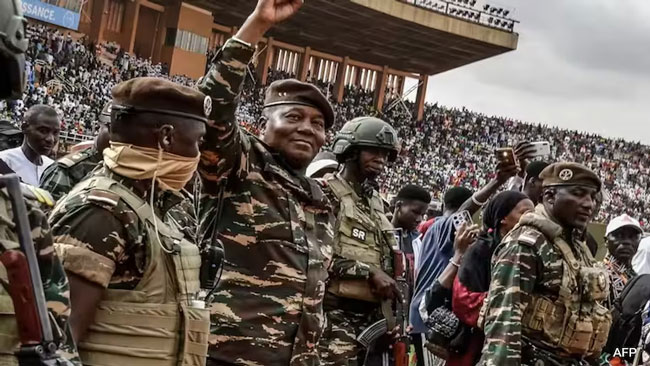By Samuel Fury Childs Daly, Associate Professor of History, University of Chicago
In recent years, Africa has witnessed a resurgence of military coups in nations such as Mali, Niger, Burkina Faso, Sudan, and Guinea. Once considered a relic of Cold War politics, military rule has reemerged as a dominant force, unsettling both domestic and international observers.
Suppression and Turmoil Under Military Rule
Coup leaders have clamped down on protests, restricted media freedoms, and resorted to violence in the name of public safety. While they justify their actions as necessary to protect citizens from internal and external threats, their rule has often worsened existing issues, including violent extremism. Moreover, conflicts among generals have led to situations like dueling coups in Burkina Faso and outright civil war in Sudan.
A Shift in Geopolitical Alignments
In West Africa, these military regimes have significantly altered the geopolitical landscape. Traditional allies like France and the United States have been sidelined, while Russia, often represented by state-funded mercenaries, has gained influence.
Militarism: An Enduring Legacy
The resurgence of military rule is rooted in Africa’s postcolonial history. Militarism, the fusion of military and political objectives, was a defining feature of governance in the decades following independence. Between 1956 and 2001, Sub-Saharan Africa experienced approximately 80 successful coups and numerous failed attempts. In nations where coups were frequent, the military shaped political norms even without direct rule.
Military regimes often promised “transitional” governance but rarely relinquished power, with some holding control for decades. Their governance emphasized obedience, discipline, and a vision of order that they claimed would lead to prosperity. This ideology, though diverse in expression, was distinct from Cold War ideologies like capitalism or socialism.
The Allure and Failures of Militarism
The appeal of militarism lay in its promise of independence and order. By cutting ties with unpopular foreign powers, regimes like those in Niger and Burkina Faso gained public favor. However, the reality of military rule often felt like a long, oppressive occupation. Regimes declared war on societal issues such as indiscipline, drugs, and crime, but their authoritarian methods alienated civilians.
Despite their ambitions, no military regime achieved the utopia they envisioned. Resistance from other branches of government, civil society, and the African diaspora thwarted their plans. Like many unsuccessful revolutions, militarists blamed the public and foreign interference for their failures—a narrative that persists today.
What Lies Ahead?
The new wave of military regimes lacks the comprehensive visions of their predecessors but could develop similar ambitions over time. History suggests they are unlikely to voluntarily cede power soon. To understand their future actions, it is essential to examine the past, where promises of a “soldier’s paradise” shaped their strategies.
About the Author:
Samuel Fury Childs Daly is an Associate Professor of History at the University of Chicago and the author of Soldier’s Paradise: Militarism in Africa After Empire.
This article is republished from The Conversation under a Creative Commons license.




